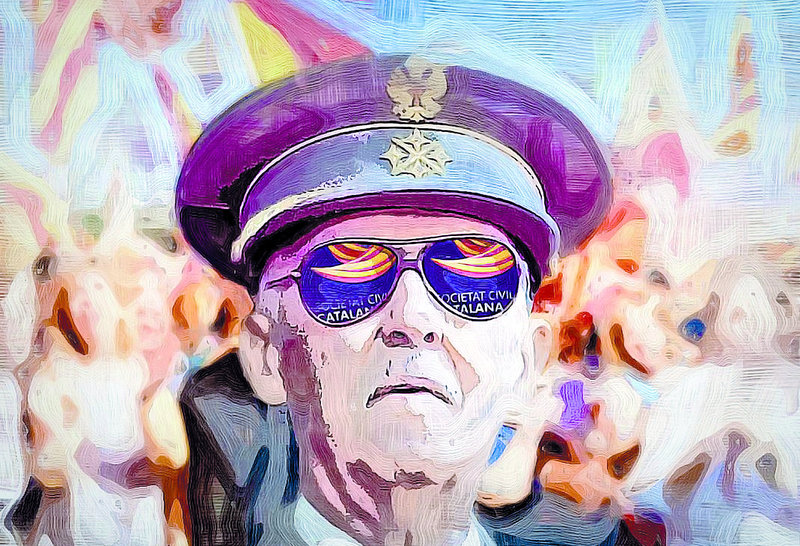Long-term resident
Matthew tree
Being civil
Incredibly, this small, economically hermetic organisation with neo-Fascist links was awarded The European Citizenship Award by the EU at the end of 2014
Hearsay has it that some readers of this magazine have complained to the management that it dwells in unnecessary depth on the issue of Catalan independence. So, specially for those grousers, here is yet another piece on the same subject. But before they rip this page out and line the cat tray with it, I should add that this article simply wishes to provide some reliable information about a little known but curious aspect of the said issue. As most residents know, the prime mover of the independence movement is a non-party, multilingual and multi-ethnic grass roots association called the Catalan National Assembly (ANC). It has just over 80,000 members, about half of whom pay dues (the rest are volunteers). Since 2012 it has organised the three biggest demonstrations in post-war Europe (between 1.5 and 1.8 million people, depending on the year, from a base population of just 7 million). Until recently, Catalan unionists had no grass roots movement at all, until something calling itself Catalan Civil Society (SCC) emerged in April of last year. Among the attendees at the the inaugural ceremony in Barcelona were delegations from the Francisco Franco Foundation, the Social Revolutionary Movement (a party partly made up of neo-Nazis) and the xenophobic Plataforma x Catalunya. Indeed one of the founders of the SCC is also a far-rightist: Javier Barraycoa, a member of the ultracatholic Carlist Communion. And the SCC's president – Josep Ramon Bosch - is a declared admirer of the late Fascist leader Blas Piñar. Despite these far-right ties, members of perfectly respectable unionist parties – including the Catalan Socialist Party - have been seen at SCC rallies, such as the one organised in Tarragona on September 11th, 2014 to counterbalance the ANC's one and a half million strong demonstration in Barcelona. (3,600 people turned up in Tarragona). The SCC claimed that the considerable costs of its rally – not least coach hire - had been paid out of the pockets of its members, which, given that there are just 72 of them, had perforce to be of a depth most wondrous; indeed, the SCC has later effortlessly settled other hefty bills incurred by its activities: the source of its funding still remains a mystery. Incredibly, this small, economically hermetic organisation with neo-Fascist links was awarded The European Citizenship Award by the EU at the end of 2014, for which reason the SCC was publicly congratulated by the Spanish president (who knew the SCC well, having granted its leadership a private audience in Madrid just three months after it was founded). Indeed, some say that the SCC could well be a purely bogus outfit bankrolled and promoted by the Spanish state with the aim of putting yet another spanner in the works of the pro-independence movement. But that's just a rumour.


